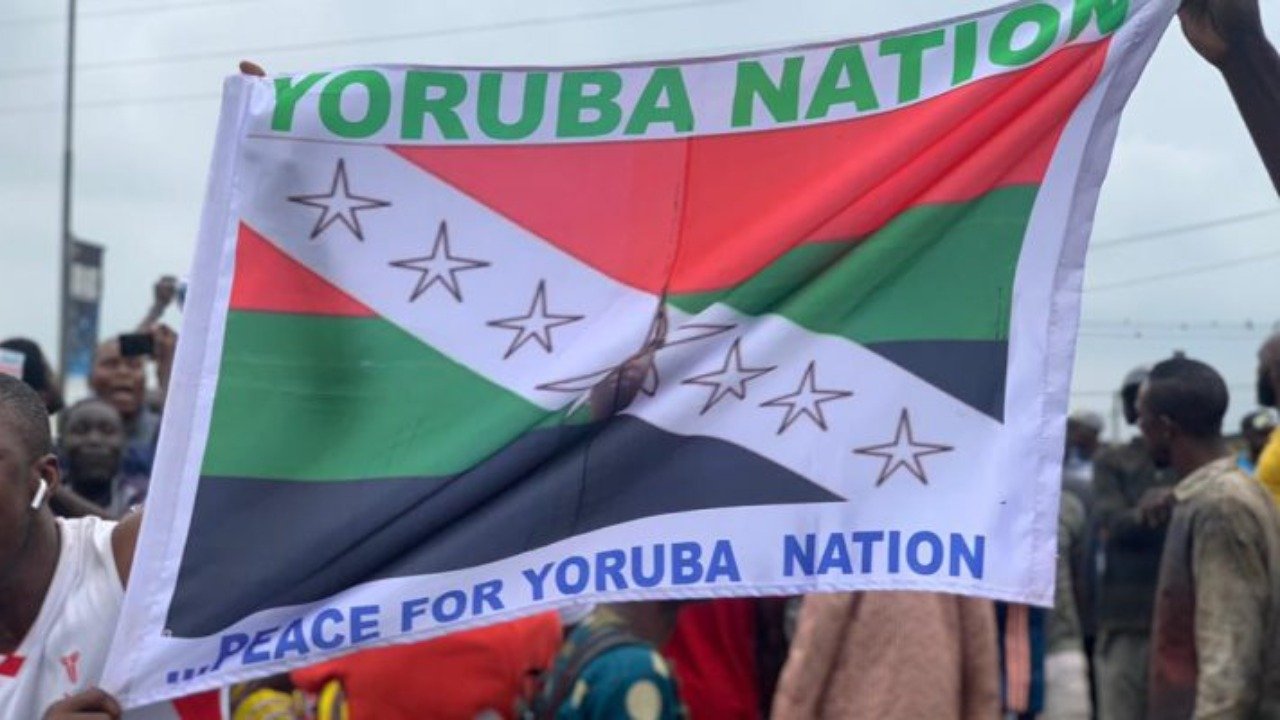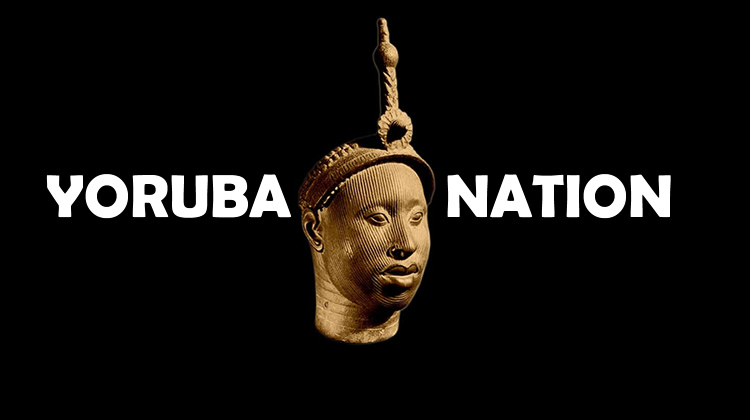By Kayode Emola
Last Friday, a group claiming to be Yoruba nation advocates, led by Ms Onitiri, attacked the Oyo State Secretariat. This was not only a brazen assault on the Nigerian state, but also an affront to the genuine Yoruba nation campaigners.
Before discussing the actions of these hooligans, I will first suggest three paths by which an independent Yoruba nation can be lawfully attained. First, a national conference where all the stakeholders within Nigeria are called to a negotiated settlement. This, unfortunately, will never happen. Without going into great detail, we know that the Fulani, who are the greatest beneficiaries of Nigeria’s skewedness, will not allow this.
Secondly, a mass demonstration by the Yoruba people and other disgruntled nationalities that forces a standstill in the system. This may result in the offer of a referendum with UN supervision, and, if the result shows a majority in favour of dissolution, then a date can be set for departure.
In the event that these two fails, the third option would be declaration of war and the resulting armed conflict. In this situation, we see the truth of the proverb, that if you push a goat to the wall, it is bound to fight back.
This is why many of the Yoruba elders over time have stated that they want a peaceful dissolution. However, lacking the courage to ask for complete separation, they instead request a restructured Nigeria. Whilst this may give us a quasi-Yoruba nation, we will still have the hang-over of Nigeria’s problems in our hands to deal with.
It is this lacuna that Ms Onitiri saw and capitalised on. Her reckless actions were not intended to achieve Yoruba independence; rather all she sought was to create fanfare and raise her own personal profile, using the Yoruba nation struggle as a smokescreen.
I know this because of personal interactions that I have had with her and her team. Around November 2021, one of her scouts attempted to recruit me at the time that Ms Onitiri was preparing to launch herself. After a few conversations, I saw that she was the antithesis of what a future Yoruba leader should be. I immediately cautioned everyone around me to be wary of this woman, stating that I didn’t want anything to do with her.
It was clear to me that Ms Onitiri wanted to build a personality cult rather than institutions to stand the test of time. For this reason, she attracts greedy people into her cause with promises of giving them heaven and earth, knowing even as she does so that this is a lie.
The next encounter I had with her agents of doom was in February 2022. They called me to discuss an alleged bribe by the Nigerian government to some fifth columnist among us. I informed them that I don’t know anything about it and I am not interested in such matters; that I would rather focus my energies on the work required to further our quest to achieve Yoruba independence.
The next thing I saw was what appeared to be a private conversation being circulated widely across social media. In this moment, I knew these people would resort to any devious means in order to achieve their aim; so, I immediately cut off any form of communication with these people, which has remained so till today.
Shortly thereafter, some people in our ranks began to promote this woman, propagating her false narratives. Among these was the claim of conducting a UN sanctioned-petition which, if five million Yoruba signed it, would grant us independence with no need to conduct a referendum. Despite sounding too good to be true, a lot of our people fell for this lie.
Somehow, she achieved the five million signatures which emboldened her to further entice the Yoruba people with unsubstantiated gimmicks and fantasies. She told us to start printing international passports, because Yoruba would leave Nigeria by 2022, however no date was ever set for this exit.
Failing to get the major players to support her egotistic quest, in November 2022 she went on social media to declare that Yoruba is now an independent nation. When the whole saga turned on her, she tried to hide her folly under the semantics of reclamation, proclamation etc.
Seeing that her gimmicks were not working, she resorted to the last option, declaring war on the Nigerian state. Whilst Onitiri is within her rights to do whatever she wants with her life, it is an affront to the real Yoruba struggle to have her hide under the banner of freedom fighting whilst derailing the real movement.
Her actions of last Friday 12 April 2024 show no thought process or genuine desire to forward the Yoruba cause. She was merely seeking to massage her ego, derailing the real Yoruba independence struggle in the process. The few untrained thugs in army camouflage that she sent to plant a flag in the state secretariat are not able to effect the takeover of a street, let alone a nation.
It is clear that her true intentions are not to get an independent Yoruba but serve her paymasters, the Nigerian politicians. You may recall how Igboho became a wanted man when he organised a rally supporting Yoruba nation independence in July 2021. Yet even though Ms Onitiri is residing in Nigeria, the Nigerian government did not declare her wanted until various quarters began alleging their complicity.
What is the Nigerian government hiding? Are they concerned that Onitiri will expose the people behind her attempt to silence the real quest for an independent Yoruba nation? They should know that the Yoruba nation struggle for independence has got a life of its own, a light that cannot be extinguished. Our people know the truth, and they can see the road, so they cannot be deceived. The majority want a Yoruba nation, and nothing can change that fact.
The best action that the Federal and State Governments of Nigeria can take would be to begin the process of peaceful dissolution of Nigeria; otherwise, a chaotic dissolution may be inevitable.
I urge our true patriots to remain steadfast and vigilant, knowing that the actions of unscrupulous people like Onitiri will never succeed in derailing our quest for an independent Yoruba nation. Our mission is to liberate the millions of our people from this bondage called Nigeria, and God Almighty who is leading us will continue to guide us in the right path without fail.


 News6 years ago
News6 years ago
 Featured6 years ago
Featured6 years ago
 Boss Picks6 years ago
Boss Picks6 years ago
 Headline6 years ago
Headline6 years ago
 Headline6 years ago
Headline6 years ago
 Headline5 years ago
Headline5 years ago
 Headline6 years ago
Headline6 years ago
 Headline6 years ago
Headline6 years ago












